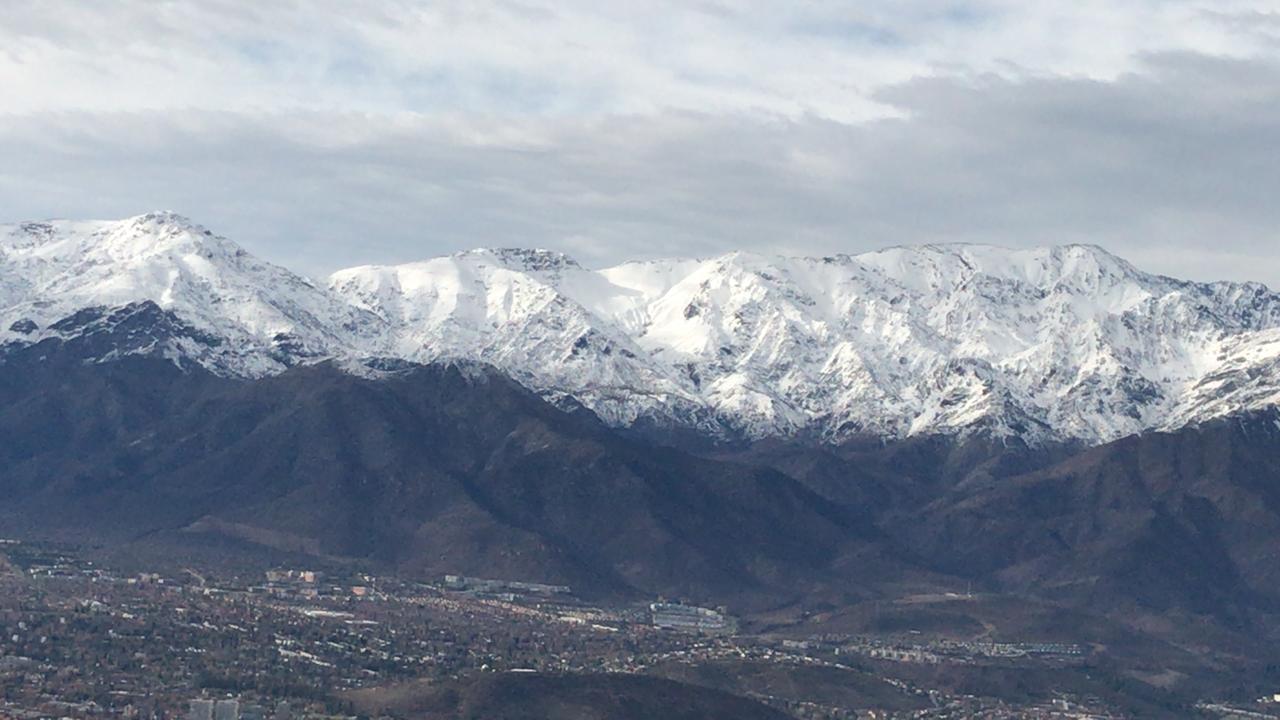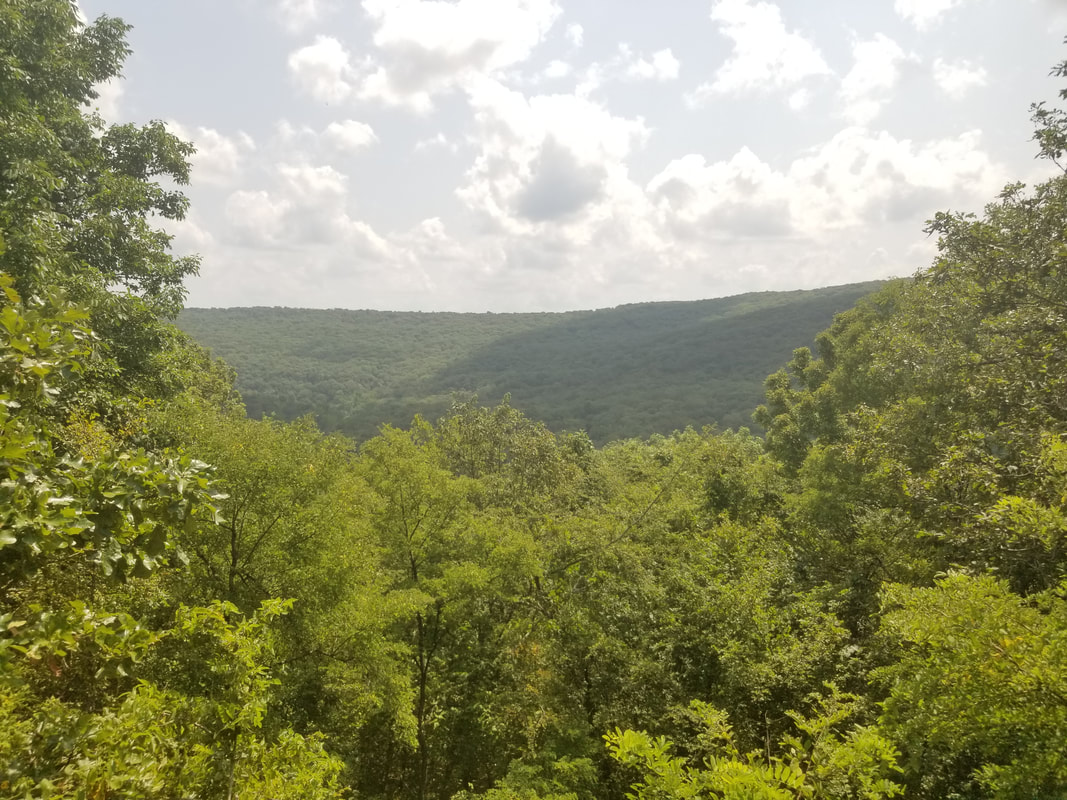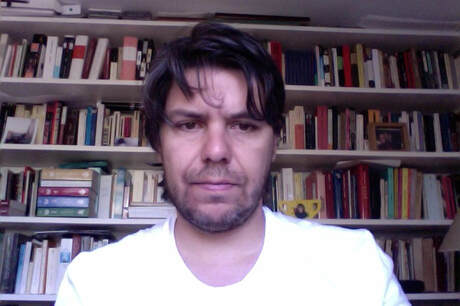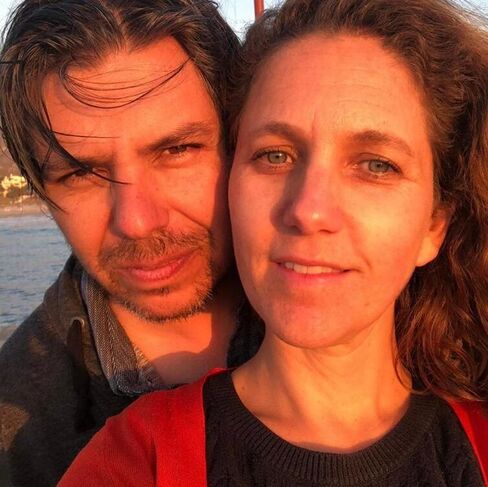|
I am so pleased to present Lea Graham's craft essay about her translation process for my anniversary month. The Working On Gallery turned one year old, and there is no better way to celebrate it than with her astonishing biographical essay. I had goosebumps the whole time reading it. This is why I started the gallery. This gallery is personal in the sense that it allows authors to share their creative processes, some created from years of intimate self discovery, culminating in the choices that define dreams and careers. Graham is a translator who currently works with a Chilean poet, Sergio Coddou. I translate Japanese waka-poems because I am seeking threads of my heritage through ancient words - - the use of language, images, and sounds - - If I study these poems, I feel the spaces between between my body (where I physically exist) and soul (where I belong) fill out. For me, waka-poems build my creative identity. My roaming soul (to borrowing some of Graham's translated words) is still out there. Time seems to crawl when I try to articulate what it seeks, or why it roams. But when the moment is right, it is beautifully answered. As if Coddou's wife said, “That word… it has a little bit of soil in it.” It Has a Little Bit of Soil in It: Reflections on Translation & Place By Lea Graham Translation is intimate work. As with any significant relationship, there’s risk and routine. There’s something secretive about it too, as if you, the translator, have discovered what no one else has before. I often feel that I’m falling into the poem as I’m translating. The intensity of investigation into individual words, phrases or idioms; the searching into word histories, and the exploration of the poet’s life and concerns creates a familiarity, a camaraderie, an empathy. Like any intimacy, it slows the world down. When I first started translating poetry I was in graduate school in Chicago, living in the largely Spanish-speaking neighborhood of Pilsen on the Near West Side. The details of the living room in the apartment I worked from are vividly recalled: the honey-brown Mission-style desk (scored in a fancy North Side yard sale), a large red hibiscus flowering in one of the tall windows and a honey locust peering in from another. Both looked out onto 21st Place and Damen where I lived for nearly a decade and where later in the day I would hear the jingle of the elote man’s cart and then, the ice cream truck’s “Turkey in the Straw” as evening slipped into night. The ceilings were high, giving the room a sense of amplitude; various Spanish, English and etymological dictionaries lay in a half-moon around my computer and on the floor around my feet. Each morning two crows valentined each other—one from the roof of the house across the street, the other up in the tree. It took me a few weeks to realize that as I worked, they were having their daily coffee klatch. My first project those years ago was in translating poems by the Chilean poet, Gabriela Mistral. My professor, upon learning that I was working in Spanish, said “Oh, you must translate Mistral.” She said it with such conviction but also in a tone that suggested I would continue to be the undereducated rube she thought I already was if I didn’t. What I learned from her that semester was the kind of teacher I did not want to become. Each class she made caustic remarks about all we didn’t know or would pointedly ask one of the older and more fluent graduate students to read our work out loud, not so subtly implying that she couldn’t bear to hear our pronunciation. Still, the lessons and experience of translating Mistral more than made up for the condescension. Gabriela Mistral was a poet and an educator who championed the rights of women, children and the poor before becoming a diplomat for Chile. She was a fierce advocate of democracy and education in her own country and throughout Latin America which is why so many schools still bear her name. All this appealed to me. I had spent a few years living in Spanish-speaking communities where, in one of my jobs, I worked as an advocate for Central American refugees. Weekly, I drove my clients to the Immigration Office in Paterson, New Jersey, stood in line, petty-bribing the guards with sticks of gum, a smile, and my whiteness, trying to get my clients moved up further in line. I still remember the negotiation process when we finally got to the counter: there I was in my ripped-at-the-knee-jeans, just out of undergraduate and my first time in the Northeast; my clients, mostly young or middle-aged Salvadoran or Nicaraguan men, all silent and anxious next to me. I could feel both their fear and faith as we negotiated their green cards in an exchange that was almost always rude and sometimes blatantly hostile. We always managed to get it done. Afterwards, I could feel the relief in their more relaxed postures as they insisted upon taking me to lunch at the nearby Salvadoran restaurant. That was where they would tell me details of their families back in San Salvador, Santa Ana, Managua or Esquipulas—of blackouts and nightly curfews, of the missing and the not knowing, of the last phone call they had with their mother, their brother, a niece. Those moments across a table where we shared plates of pupusas de queso y revuelta, tables covered in red and white plastic coverings, a picture of El Salvador up on the mostly bare wall, the low hum of conversation and small clatter back in the kitchen. Despite these experiences and my philosophical connection to Mistral’s life’s work, I had never been to Chile. I had no sense of the breath-catching rise of the Cerro del Plomo from the streets of Santiago, the endemic flora that appears in her work—plants that couldn’t travel elsewhere because of the specific and confining terrain, or the Gainsboro to Spanish grays and Egyptian to azurite blues of the ocean off the Valparaiso coast that now, years and travels later, remain as some of the most mysterious and dreamy seascapes of my life. What I did understand was her loss of place and the identity that went with it. Mistral’s losses—both that of her lover and a beloved nephew by suicide, along with her name change from Lucila Godoy Alcayaga to her pseudonym (drawn from the names of two favorite poets; the Italian, Gabriele D’Annunzio and the Provencal, Frèdèric Mistral) were romantic to me at the time. But it wasn’t the kind of romance that made anything transcendent. Her pain for those she had lost, including a version of herself, were commensurate with her success as a poet, teacher and diplomat. Her poems were not salvation narratives; rather, they were fully immersed in both their anguish and their resoluteness in poetry-making itself. When I reflect now, I realize that the intimacy I felt that seemed so personal to me at the time was actually created through the poems’ specific locus and their energizing abstractions. It was the sense that all serious readers feel when they read good work: that the poet’s plight is your own. My own series of displacements in childhood began with my parents’ divorce in 1970s Northwest Arkansas when divorce was taboo at worst, and shameful at best. After relocating from a comfortable home in a small town to my maternal grandparents’ chicken and dairy farm, we moved to the nearby university town where we continued to change schools every two years. When my mother remarried, the displacement took on new characteristics in which my brothers and I learned in various ways that we were not valued, that we were burdens. It was this emotional displacement that complicated the geographical changes. It still translates all these years later like one loss blending into another. Alongside my early education of place, the graduate courses I took a decade later, with some notable exceptions, didn’t recognize me or my background. To paraphrase the poet Lucille Clifton, I had “windows” into other worlds through reading, but few “mirrors” in my education to recognize my own experience. The Southern towns and farm-scapes from where my language had grown and in which meaning and lyric were layered for me were dismissed as culturally impoverished. I sensed a dishonoring of my original places in the very place where I was learning to intensely read and write, a place where I was learning to teach other young people with even more invisible backgrounds than my own. Even with the privilege of whiteness and a certain kind of middle-classness, my lack of “mirrors” kept me from seeing myself as a serious writer and academic. But while I felt alone in my longing, I sucked it up, flattened my accent and embraced the urban North. My translation of the poem “Balada de Mi Nombre” (“Ballad of My Name”), stands out for me in its ability to inhabit both loneliness, the condition of being alone, and lonesomeness, that interior isolation that one feels no matter who they are with: My own name that I've lost, In this opening, the name has been lost to the speaker but still continues to live on in memory and the natural, sensory world. As the poem continues, we see the name personified; it is its own agent out in a familiar and beloved world to the speaker but apart from her. She, in turn, is a stranger to it: If without me, or if carrying away my youth, I love this poem for the way in which we see how profound the speaker’s isolation is. While the name is “lost” to her, it still lives on in this familiar world and fails to recognize the person who was, once upon a time, intimate with it. The speaker’s anguish at having others “tell” her that it walks “along the precipice of [her] mountain/ late in the afternoon” calls up deep loss and the pain of having to hear about it from others even as it still traverses the places that the speaker calls her own. The name has abandoned her without having abandoned the places she loves and the people she knows. The final line: “without my body and my soul roaming” can be read as both the name walking without her body and soul, but also as if “my soul roaming” is intrinsic to the name so that the name and her soul are companions, both lost to her. Years, jobs and a few geographies later, I found myself translating poems for an anthology of contemporary Chilean poets and this question of identity raised its head in a different way. I worked all through that fall and winter with a native-speaking colleague at my institution. Irma and I would often meet in her office filled with brilliant-colored wooden animals, Day of the Dead figures, crosses and wall hangings from Latin America and Spain—color exploding from every wall and shelf so that you couldn’t help but feel a little more joyful no matter what kind of day you were having. We would happily haggle over words in the poems we were working on until one day when I was struggling to translate a small, spare poem that contained the word “alma.” Unlike the nature of Mistral’s spiritual work, this poem was far more bodily and overtly sensual. We struggled over whether I should go with “soul” or “spirit” or “essence.” We questioned how to render “soul” into the English language when it has become a word that means everything from religion to philosophy to personality to food to music? It’s a word that in meaning so much has lost its flavor. It was a conversation and translation dilemma that lingered long after the anthology was published. In working on that anthology, what caught my imagination most was the work of the poet Sergio Coddou, and his poem “Soy un Hotel” (“I Am a Hotel”). It was a poem that felt like a homecoming as I translated: I am a hotel decked out to receive your laments with a room especially accommodated to shuck myself in your presence and you make of me sublime popcorn with the fire of your glance. There was a shock of joy in translating the word “desgranarme” (to shell) when I finally landed on the word “shucked.” It was a word from my childhood that was fun to say—even before I learned what it rhymed with. The softness of the “sh” along with the hard “ck” sound had such satisfaction. But just as much, it was the connection to home—shucking corn with its satisfying sough and ripping sound along with the curious and maddening silks that we had to pick off for our grandmother so she could boil the sunny husks. While the poem was an early love poem to Coddou’s wife Rosario, it also had such a wonderful sense of place in its language and conceit. It was so beautifully raw and imaginatively romantic that I sent Coddou a message to see if he would let me publish my translations of his work in literary journals. When he told me he liked how I had rendered his work into English, especially the sound, it began an ongoing conversation. Then one winter night a few years after our initial email exchange, Coddou and his family were visiting Manhattan, and they invited me to dinner. I arrived at their Airbnb on the Upper East Side with a backpack full of cookies for the kids and a bottle of wine for him and Rosario. It was one of those New York City nights that smelled of snow. We had dinner in the spacious and warm apartment with their four children, who were clearly accustomed to their parents’ friends at dinner as evidenced by their courtesy and friendly ease. Dinner was followed by one of those conversations—full of art and poetry, Chilean politics and family history—which I relaxed into, never wanting it to end. Rosario told me that when he showed her that poem—the same poem that I had been so taken with—that’s when she knew “he was serious” about her. Our conversation continued as I told them about the process of translating the poems for the Chilean anthology those years before and, specifically, the struggle over the word “alma.” I told them about the dilemma of the English and how to go with “soul” was to invite religious or heavily philosophical baggage, while “essence” suggested the Clinton-Lewinsky scandal. So how could I do justice to the translation? The moment became especially vivid when Rosario touched her pointer finger to her tongue, marked the air with it, and said, “That word… it has a little bit of soil in it.” She explained that the word is connected to the land, to a specific place. It was one of those moments that stunned me in its brilliance. Why hadn’t I thought of that? After all, the word’s etymology came in part from the Arabic “al-ma,” meaning “on the water.” Her insight had concretized the word, turning it beyond the religious or the psyche and into locus—the place where things happen. It was a moment in which I had the profound glimpse at how embedded our language is in our place of origin. What she knew couldn’t be fully discovered in a book, but it felt deeply and intuitively accurate. There we were around a warmly lit table, the leftover dishes pushed to one side, the wine half-gone, several stories above the city where anything anyone might imagine was whirling around us like the snow that would come in the early hours of morning. In that extraordinary conflation of conversation, revelation, people and place, an intimate moment had occurred, a moment within a night that felt like my best experiences of translating. The most brilliant moments come unexpectedly and indirectly. I learned that while I wanted to be faithful to the original language of the poet, I discovered that what was really after and what I found was the spirit or genius loci within the poem’s stanzas and spaces. Lea Graham is the author of two poetry collections, From the Hotel Vernon (Salmon Press, 2019) and Hough & Helix & Where & Here & You, You, You (No Tell Books, 2011); a fine press book, Murmurations (Hot Tomato Press, 2020), and three chapbooks, Spell to Spell (above/ground Press, 2018), This End of the World: Notes to Robert Kroetsch (Apt. 9 Press, 2016) and Calendar Girls (above/ground Press, 2006). She is the editor of the forthcoming anthology of critical essays: From the Word to the Place: The Work of Michael Anania (MadHat Press, 2021). She is an associate professor of English at Marist College in Poughkeepsie, NY and a native of Northwest Arkansas. You may also like reading Dust in the Sunlight: Translating Light by Steven Teref and Maja Teref. Comments are closed.
|
Archives
July 2024
|
フジハブ
Welcome to FUJI HUB: Waystation to Poetry, Art, & Translation. This is not your final destination. There are many links to other websites here, so please explore them!
Welcome to FUJI HUB: Waystation to Poetry, Art, & Translation. This is not your final destination. There are many links to other websites here, so please explore them!
What are you looking for?
FUJI HUB Directory
Popular Sites:
Gallery of Graphic Poems
Working On Gallery
(Monthly New Article by Writers & Artists)
About Naoko Fujimoto
Contact
Naoko Fujimoto Copyright © 2024
FUJI HUB Directory
Popular Sites:
Gallery of Graphic Poems
Working On Gallery
(Monthly New Article by Writers & Artists)
About Naoko Fujimoto
Contact
Naoko Fujimoto Copyright © 2024








